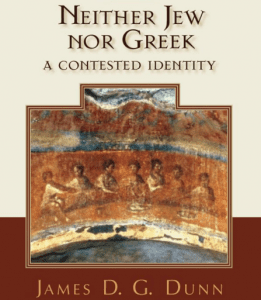 Alexander the Great, son of Philip of Macedon and heir of the great Macedonian empire, proved himself in battle and militarism, expanding the Macedonian empire through strategic military victories across Turkey (334, 333), the Holy Land (Coele-Syria, 332), Egypt (332), Babylon (331) and on into India (324). In 323 BCE he becomes ill in Babylon and dies — his successors split his empire into three domains.
Alexander the Great, son of Philip of Macedon and heir of the great Macedonian empire, proved himself in battle and militarism, expanding the Macedonian empire through strategic military victories across Turkey (334, 333), the Holy Land (Coele-Syria, 332), Egypt (332), Babylon (331) and on into India (324). In 323 BCE he becomes ill in Babylon and dies — his successors split his empire into three domains.
Warren Carter, in his useful new book, Seven Events that Shaped the New Testament World, sketches the impact of Alexander the Great on earliest Christianity, and his impact is not negligible. Carter will explore Alexander’s image of the manly man and contend that the manly man of the Greek and Roman worlds were deconstructed by the vision of manliness found in Jesus. But before we get to that, the impact of Alexander first.
How is manliness understood today? Why is there so much appeal in the men’s sector for resonance with the manliness vision of Alexander the Great?
Alexander spread Hellenistic culture, though his reason for conquering cannot be reduced to spreading that culture. Alexander was a man of immense ego and power. How did he spread this culture?
1. Physical presence of people of Hellenistic culture were established in each new city.
2. Local alliances were formed.
3. Urban development was central to the spread of Hellenism.
4. Two-way traffic: the spread of culture involved absorption into other cultures and dialectical changes.
5. Alexander’s influence, then, on Jesus and the church: the language of early Christians was Greek; cities were central in the Christian mission; philosophical traditions appear in Pauline writings; diverse ethnicities were central to the Pauline mission; and diverse religious experiences enabled Christianity to take root in the Roman empire.
For Carter, though, Alexander’s impact was also at the level of a hero, “a macho man, an action figure” (17). “In a male-dominated society, he defines male greatness by his manly actions of rule and courage” (17). One leader after another payed homage to Alexander, including Pompey, Julius Caesar, Octavian, Caligula and Trajan.
The New Testament presents the Son of Man as the true man. But Jesus’ manhood subverts the manly man of the Greco-Roman world because Jesus’ manhood is one of humiliation, service and crucifixion. Jesus takes on the form of a slave (Philippians 2:5-11). True manhood is not measured by courage or strength but by self-sacrificial love for the other.











